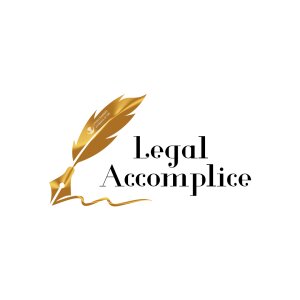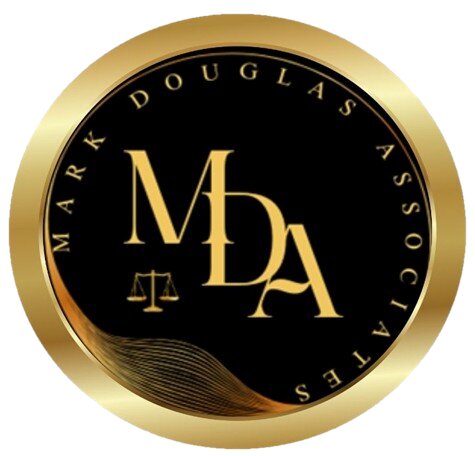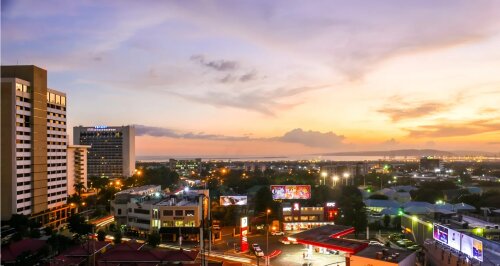Best Foreclosure Lawyers in Montego Bay
Share your needs with us, get contacted by law firms.
Free. Takes 2 min.
Free Guide to Hiring a Real Estate Lawyer
List of the best lawyers in Montego Bay, Jamaica
About Foreclosure Law in Montego Bay, Jamaica
Foreclosure in Montego Bay, Jamaica, is a legal process through which lenders can recover the balance of a loan from a borrower who has stopped making payments, typically by selling the property used as the security for the mortgage. The process can be complex and involves various legal and procedural steps. In Jamaica, foreclosures are generally governed by the mortgage contract terms and Jamaican real estate laws, and they tend to follow judicial processes which means a court adjudication is typically involved.
Why You May Need a Lawyer
There are several scenarios where having a lawyer is crucial during foreclosure proceedings in Montego Bay:
- Legal Advice and Guidance: Understanding the foreclosure process and your rights can be challenging without legal expertise.
- Negotiating with Lenders: A lawyer can help negotiate terms with lenders to find alternative solutions like loan modifications or refinancing.
- Representation in Court: If foreclosure proceedings reach the courtroom, having a professional narrative can make a significant difference.
- Document Review: Ensuring all documentation is correctly interpreted and managed is crucial in foreclosure cases.
- Protection from Fraud: A lawyer can protect you from foreclosure scams and fraudulent entities that may try to take advantage of your situation.
Local Laws Overview
Foreclosure laws in Montego Bay fall under broader Jamaican property and contract legislation. Here are key aspects:
- Judicial Foreclosure Process: Most foreclosures in Jamaica are judicial, requiring legal proceedings in court for the lender to foreclose on a property.
- Right to Redeem: The borrower may have the right to redeem the property by repaying the debt, costs, and interest, which may occur at any point before foreclosure is finalized.
- Deficiency Judgments: Lenders may seek deficiency judgments to recover the amount still owed on the mortgage if the sale of the property does not cover the debt.
- Notice Requirements: Lenders must provide proper notice to borrowers before initiating foreclosure proceedings.
- Eviction Rules: Post-foreclosure eviction procedures are subject to specific legal protocols that protect homeowner rights.
Frequently Asked Questions
What is the basic foreclosure process in Montego Bay?
The basic process involves the lender proving the borrower's default in court, obtaining a ruling for foreclosure, public auctioning the property, and allocating sale proceeds toward the outstanding debt.
How long does foreclosure typically take?
The time frame varies but can take anywhere from several months to a few years, depending on court schedules, responses from parties involved, and any potential appeals.
Can foreclosure be avoided?
Yes, alternatives include loan modification, refinancing, debt settlement, or selling the property to repay the mortgage. Seeking legal advice can help explore these options.
Will I still owe money after foreclosure?
If the sale does not cover the full mortgage, the lender may pursue a deficiency judgment to recover the remaining balance, depending on court rulings and contract terms.
Are there consumer protections in place?
Yes, various laws protect borrowers, including those that require clear communication from lenders and procedures to follow before foreclosing.
What happens to second mortgages or liens?
Foreclosure affects subordinate liens; however, holders of these liens might still seek to recover unpaid balances from borrowers.
Can a lawyer help with contesting a foreclosure?
Absolutely, lawyers can help identify valid defenses or procedural mistakes by the lender that might invalidate the foreclosure action.
How does bankruptcy affect foreclosure?
Filing for bankruptcy can temporarily halt foreclosure proceedings through an automatic stay, buying more time to explore debt relief or financial restructuring.
What should I do if I receive a foreclosure notice?
Seek legal advice immediately to assess your case, understand your rights, and explore available options or defenses.
Can housing counselors assist in foreclosure situations?
Yes, certified housing counselors can provide advice on avoiding foreclosure and may work alongside lawyers for a comprehensive strategy.
Additional Resources
Here are some valuable resources for individuals facing foreclosure in Montego Bay:
- Jamaica Mortgage Bank: Provides information on mortgages and financial advice.
- Ministry of Housing, Urban Renewal, Environment, and Climate Change: Offers resources related to housing policies and rights.
- Jamaican Bar Association: Find qualified legal professionals specializing in real estate and foreclosure law.
- Jamaica National Building Society: Offers debt counseling and financial planning services.
Next Steps
If you need legal assistance with foreclosure, consider the following steps:
- Research Local Attorneys: Look for qualified real estate attorneys in Montego Bay with experience in foreclosure cases.
- Consult a Professional: Schedule a consultation to discuss your situation, legal rights, and potential outcomes.
- Gather Documentation: Collect all relevant documents, including your mortgage agreement, payment records, and any correspondence with your lender.
- Explore Legal Aid: If financial constraints exist, seek legal aid services that might assist those unable to afford standard legal fees.
- Stay Informed: Keep informed about ongoing changes in foreclosure laws and procedures in Jamaica to stay prepared.
Lawzana helps you find the best lawyers and law firms in Montego Bay through a curated and pre-screened list of qualified legal professionals. Our platform offers rankings and detailed profiles of attorneys and law firms, allowing you to compare based on practice areas, including Foreclosure, experience, and client feedback.
Each profile includes a description of the firm's areas of practice, client reviews, team members and partners, year of establishment, spoken languages, office locations, contact information, social media presence, and any published articles or resources. Most firms on our platform speak English and are experienced in both local and international legal matters.
Get a quote from top-rated law firms in Montego Bay, Jamaica — quickly, securely, and without unnecessary hassle.
Disclaimer:
The information provided on this page is for general informational purposes only and does not constitute legal advice. While we strive to ensure the accuracy and relevance of the content, legal information may change over time, and interpretations of the law can vary. You should always consult with a qualified legal professional for advice specific to your situation.
We disclaim all liability for actions taken or not taken based on the content of this page. If you believe any information is incorrect or outdated, please contact us, and we will review and update it where appropriate.













